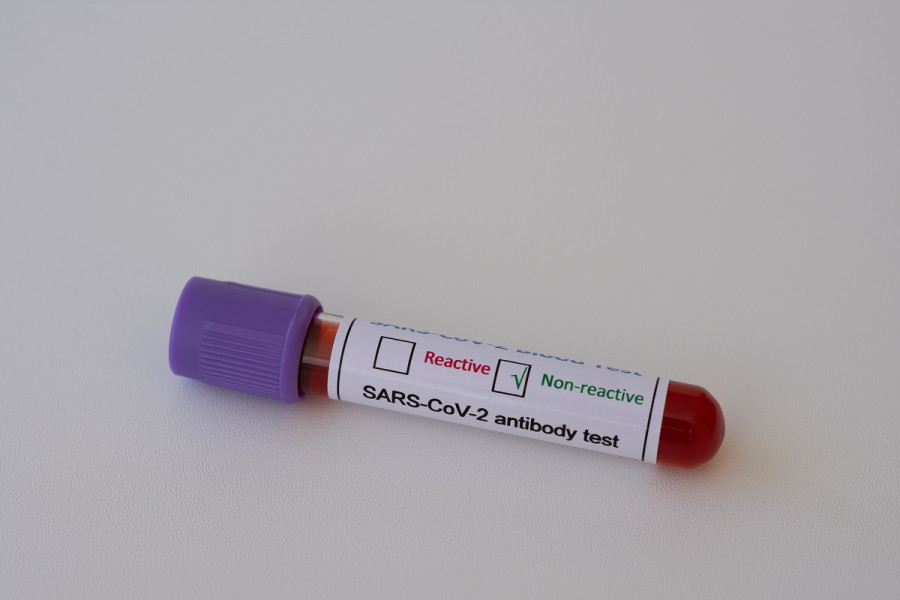Health
Five arrivals from UK test positive, raising fears new coronavirus variant is here
Whether they are infected with the new variant can be ascertained only after the sample is tested abroad.
Arjun Poudel
Five of the 193 persons who have returned from the United Kingdom and were in quarantine have tested positive for Covid-19, raising fears that the highly infectious new variant of the coronavirus may have entered Nepal.
“Yes, five people who returned from the UK have tested positive,” Dr Baasudev Pandey, director of the Epidemiology and Disease Control Division at the Health Ministry, told the Post.
Covid-19 Crisis Management Centre has kept the people coming from the United Kingdom before 24 December in hotel quarantine to prevent the possible spread of a new variant of coronavirus in the country.
“We have placed people who returned from the UK in hotel quarantine,” Brigadier General Santosh Ballav Paudel, an official at the media operation centre of the Covid-19 Crisis Management Centre, told the Post.
On December 22, the Civil Aviation Authority of Nepal directed all international airlines not to bring passengers from the United Kingdom or those transiting through the country from December 24 onwards.
The Health Ministry then duly announced that people returning from the UK would be placed in quarantine.
According to sources at the authority, some people who arrived on the cut-off day were sent to quarantine.
There are no direct flights between Nepal and the UK. These people had flown from the UK by transiting through other countries.
“As these people have tested positive in the existing polymerase chain reaction tests, we cannot say whether they are infected with a new variant,” Pandey said.
He added the samples of those individuals who tested positive have to be sent abroad for further testing to determine whether they are carrying the UK variant of the virus.
Public health experts say that a single case of infection from the new variant of coronavirus has the potential to spread throughout the country.
“The pandemic was created by a few cases in the beginning,” Dr Baburam Marasini, former director at the Epidemiology and Disease Control Division, told the Post. “We shouldn't forget that the ongoing spread of the virus in the country too was started from a few cases.”
Dr Sher Bahadur Pun, chief of the Clinical Research Unit at Sukraraj Tropical and Infectious Disease Hospital, said that the detection of coronavirus among the people returning from the UK is a matter of concern.
“As there is a concern about new variants of the coronavirus throughout the world, it is a matter of concern to us also,” Pun told the Post. “Genome sequencing should be performed to determine whether it is a regular virus or a new variant.”
“Such study will not only help us identify the virus type but also to make strategies for the future.” Pun added.
According to the BBC, the new variant of the virus detected in the UK could be 70 percent more infectious than other variants circulating across the world. South Africa is also struggling to contain a new wave of coronavirus infections, possibly linked to a genetic mutation of the virus.
The new variant of the coronavirus has been detected in several other countries of Europe—Spain, Switzerland, Sweden, France and Denmark. Canada and Japan have also reported new variants of the coronavirus, but authorities in Nepal have been placing only those returning from the UK in hotel quarantine.
“We have been placing in quarantine only those people returning from the UK as per the government decision,” Brigadier General Paudel said. “We will do the same for those returning from other countries if the government decides it.”
Scientists studying new variants of the virus believe that South Africa’s variant is more contagious than that seen in the UK and may affect young people more, and could be slightly more resistant to existing vaccines. There are also concerns that the South African variant of the virus could “re-infect” people who have already recovered after being infected.
Much is yet to be known about the new variant found in the UK as it was detected just a few weeks ago. Doctors in Nepal say that even if the new variant of the virus comes, it will not be as lethal as the previous one.
“The new virus may be highly infectious but may not kill many people like the original one,” Dr Prabhat Adhikari, an infectious disease and critical care expert, told the Post. “Even if the new variant has proven to be less deadly, a lot of people will be infected because it is more infectious and this is not a good thing.”
Many countries have closed their borders with the UK and South Africa and cancelled direct flights to and from the countries.
According to Adhikari, a new variant of the virus might have already developed in Nepal but because of a lack of capacity and the apathy of authorities concerned to conduct genome sequencing, people may be believing the early variant of the virus is responsible for the spread of infection here.
Nepal Health Research Council had carried out a whole- genome sequencing test of the virus in the past to know its type and spread, but has not yet revealed the findings.
Whole-genome sequencing is a comprehensive method of analysing the entire DNA sequences of an organism’s genes. Researchers believe that the whole-genome sequencing of the coronavirus could be instrumental in tracking the severity and properties of the virus.




 14.24°C Kathmandu
14.24°C Kathmandu















